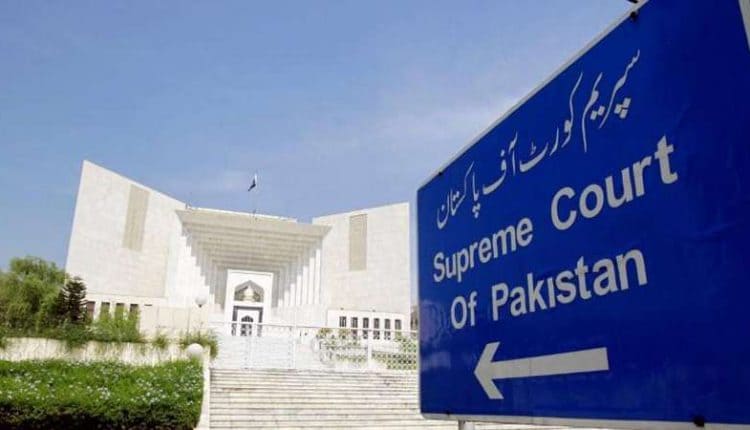ISLAMABAD: Attorney General for Pakistan (AGP) Mansoor Usman Awan on Tuesday submitted details of 102 accused who were in military custody in connection with the riots of May 9.
A six-member bench headed by Chief Justice of Pakistan Umar Ata Bandial and comprising Justice Ijaz ul Ahsan, Justice Munib Akhtar, Justice Yahya Afridi, Justice Mazahar Ali Akbar Naqvi and Justice Ayesha Malik heard identical petitions against trial of civilian accused by military courts.
At the outset of hearing, the CJP observed that it was inappropriate to take actions against somebody without any evidence. The court had trust in the AGP’s statement, he added.
He said the army officers had passion to sacrifice their lives for the country due to their high morale and their morale was very important.
The AGP requested the court not to make public the list of May 9 riots accused, who were in the custody of army. He, however, clarified that so far the trial no civilian was being run in army courts as the matter was at investigation stage.
Justice Ayesha Malik asked the AGP to public the list so that everyone knew who was taken in custody. The CJP also remarked that the public should know on Eid day that who was in the custody of army. He questioned whether the prisoners had the phone call facility to their family members on daily basis as in many jails such a facility was available.
CJP Bandial observed that being the citizens of Pakistan the prisoners should be taken care. The court was viewing the matter in a positive way, and women, children, journalists and lawyers should particularly be taken care.
The AGP said the accused in army custody had the facility to talk with family members on phone and they also had the permission to meet their families once in a week. However, for availing the facility they had to submit a request. He said all the 102 prisoners would be provided books for reading, besides the basic facilities.
Earlier, Justice Ijaz ul Ahsan, addressing the lawyer of Pakistan Tehreek-e-Insaf (PTI), said Article 175 (3) was introduced in 1986, and the current circumstances were different from the court verdicts referred to by him.
Justice Ahsan asked how the accused were being kept in army custody as according to available record none of them been charged.
Justice Yahya Afridi said it would be appropriate if the list of the accused was made public, or their contacts with their families through phones should be arranged.
The AGP said the contacts of the accused with their families on phones would be ensured in next 24 hours. Arrangements were in place to deal with any medical emergency situation, he said, adding the accused had the right to hire the services of lawyers.
Justice Munib remarked that as per army rule, firstly an accused was arrested and then the investigation process against him started.
The civilian accused, he added, could only be tried in military courts in a war like situation. Even a magistrate could not take action against any accused until a police report was submitted. How someone, who did not fall in the ambit of the Army Act, could be investigated by the institution, he asked.
Justice Naqvi questioned when the crime was not on record as per the Army Act then how the anti-terrorism court (ATC) granted custody of the accused.
Justice Yahya Afridi asked under which law the ATC had handed over the custody of the accused to the army. The AGP replied Section-II D(1) was imposed.
The chief justice observed that it was strange that the Official Secrets Act was not available to the bench and asked which crimes fell under Section-II D(1).
PTI chairman’s counsel Aziz Bhandari gave arguments on behalf of his client.
The court also rejected the petitioners’ request to grant a stay order into the matter and adjourned the case till next week.


Comments are closed.